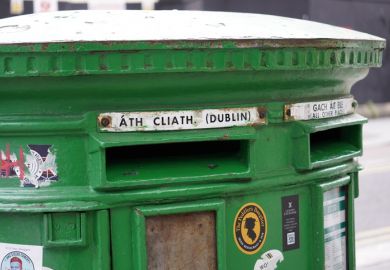With clearing just around the corner, the removal of the undergraduate numbers cap this year may prove a potent temptation for senior management to recruit more students and bring more cash into university coffers.
But if the experience of the University of Central Lancashire’s pharmacy degree is anything to go by, institutions should be wary about lowering entry standards during clearing to gain students.
A report published by the General Pharmaceutical Council (GPhC), which regulates pharmacy education, has found “important failings” in Uclan's school of pharmacy provision and one of these revolved around the selection of students during clearing last year.
The report follows a visit to the university in March and April by a team of representatives from the GPhC to reaccredit Uclan’s master of pharmacy course after a major review and a new course proposed for 2015-16.
The GPhC found that the school had been “under pressure from senior management to increase student numbers” and as a result had “reduced the required standard of entry qualifications during the clearing process”.
There was a “marked over-recruitment of students” in September 2014, with 164 recruited compared with the accredited number of 120, according to the report.
“Significant numbers” of the cohort had not met the school’s standard offer for a place on the course, with a “drop in up to four A-level grade points” for some applicants and the recruitment of a “significant number of non-traditional applicants”, it adds.
The over-recruitment came about after in-year applications fell and more places were made available through clearing, says the report.
Although additional support mechanisms had been put in place for students because of their lower qualifications, the school had “clearly failed” to meet requirements for academic entry standards for the course outlined by the regulator.
“The GPhC has raised serious concerns about this before the reaccreditation visit but the university did not act on those concerns,” says the report.
Regulators were not satisfied that a series of other requirements had been met. Their concerns included a lack of clarity on the roles, responsibilities and lines of accountability for staff; the staffing profile of the course; and worries about student learning outcomes and measures to address failing students.
It adds that the reaccreditation team were “anxious to note” that the concerns relating to certain criteria “in no way reflected on members of the academic staff of the school”, who they say had “all shown enthusiasm and dedication”.
“The team had been very disappointed at the lack of openness by the university’s senior management,” the report adds.
In light of the report, the school has, for now, decided to withdraw from the reaccreditation process. The course has one year remaining on its five-year accreditation issued by the GPhC in 2011.
A spokesman from Uclan said that ensuring the course prepares students for professional practice as pharmacists and delivers excellent student experience is of “utmost importance” and that it was working “very closely” with the GPhC.
“In line with the new GPhC regulations and after in-house changes, we opted to withdraw our early reaccreditation submission. This was to ensure the GPhC’s new guidelines are embedded into our course structure and additional staff appointments enhance our provision,” he said.
The university has recently recruited two new professors and a head of school for pharmacy and biomedical sciences, the spokesman added.
News blog: How will lifting student number controls affect universities?
POSTSCRIPT:
Print headline: Pharmacy course ‘cut entry standard’ to boost intake
Register to continue
Why register?
- Registration is free and only takes a moment
- Once registered, you can read 3 articles a month
- Sign up for our newsletter
Subscribe
Or subscribe for unlimited access to:
- Unlimited access to news, views, insights & reviews
- Digital editions
- Digital access to THE’s university and college rankings analysis
Already registered or a current subscriber?





